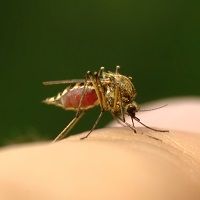Article
Zika Worsens in Puerto Rico, CDC Officials Urge Funding
Author(s):
The number of Zika cases are on the rise and a vaccine is still years away. Tom Frieden, MD, MPH, director of the Centers for Disease Control and Prevention (CDC), returned from assessing the Zika response efforts in Puerto Rico.

The number of Zika cases are on the rise and a vaccine is still years away. Tom Frieden, MD, MPH, director of the Centers for Disease Control and Prevention (CDC), returned from assessing the Zika response efforts in Puerto Rico.
This was the first United States territory to be affected by ongoing Zika virus transmission during this current outbreak. Frieden traveled from March 7 to 9 to observe the CDC’s support firsthand, and he gave an update during a telebriefing on March 10, along with Anthony Fauci, MD, director of the National Institute of Allergy and Infectious Diseases (NIAID).
“The bottom line is that Puerto Rico is on the front lines of the battle against Zika and it’s an uphill battle,” Frieden said during the press conference. One of his concerns is that there will be “hundreds of thousands” of people infected with Zika by the end of the year.
Officials are taking action in the US Virgin Islands and American Samoa — two US territories that have ongoing local transmission. The CDC is passing out Zika kits filled with insect repellent, condoms, and information about the virus.
“The more we learn, the worse things seem to get,” Fauci said.
- Related: Zika Virus Clinic Opens in New York
Zika is primarily contracted through Aedes aegypti mosquitoes, but it can also be sexually transmitted. Rainy season is around the corner and with temperatures beginning to rise in various parts of the country, it’s practically a breeding ground for mosquitos. Without a vaccine or specific treatment, prevention and mosquito control are the best weapons.
Fauci verified that there are multiple vaccine candidates, although it will take years for one to hit the market. Right now officials are testing different vaccines in 19 different parts of Puerto Rico. Resistance can vary from region to region.
A phase I trial for vaccine safety will likely be underway by the end of the summer/early fall of 2016, Fauci continued. Since it would take about four months for the results, it’s possible that we could be on our way to a Zika vaccine by early 2017.
Pregnant women are of special concern when it comes to Zika; even Pope Francis gave the green light on birth control for those in infected areas. Although not set in stone, new evidence continues to support the belief that the virus causes microcephaly — a condition where infants are born with smaller-than-normal brain and head size. Research also ties Zika to the paralyzing neurological disorder, Guillain-Barré syndrome. Frieden said that this connection is likely to be proven in the near future.
- Read: Cashing in on Zika One Insect Repellent at a Time
President Obama requested $1.8 billion from Congress for Zika efforts. This has yet to be approved or denied, but the funding is needed as soon as possible, Fauci expressed, in order to take control of the problem.
The Zika outbreak began in Brazil in May 2015. Since then, more than 30 countries and regions have confirmed ongoing infection. As of March 9, there have been 193 Zika cases in the US — all of which were travel-related and not locally acquired.
“Our goal is to protect as many pregnant women as possible,” Frieden said. “Puerto Rico remains a great place to visit… if you’re not pregnant.”
Also on MD Magazine >>> Laura Kahn from Princeton University: Debunking Myths About Zika Virus





